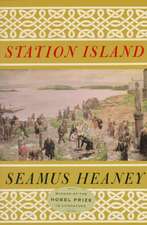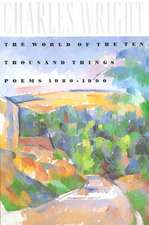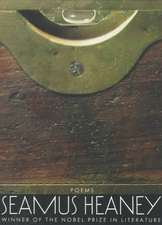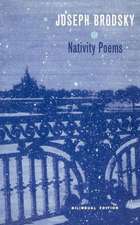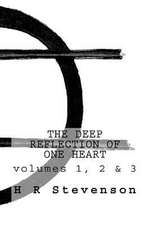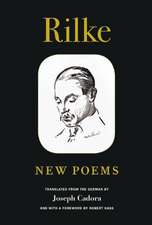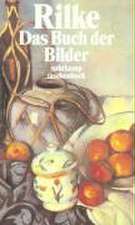Sonnets to Orpheus
Autor Rainer Maria Rilke Traducere de Edward A. Snowde Limba Germană Paperback – 30 apr 2005
Breathing, you invisible poem!
World-space in pure continuous interchange
with my own being. Equipose
in which I rhythmically transpire.
Written only four years before Rilke's death, this sequence of sonnets, varied in form yet consistently structured, stands as the poet's final masterwork. In these meditations on the constant flux of our world and the ephemerality of experience, Rilke envisions death not only as one among many of life's transformations but also as an ideally receptive state of being. Because Orpheus has visited the realm of death and returned to the living, his lyre, a unifying presence in these poems, is an emblem of fluidity and musical transcendence. And Eurydice, condemned to Hades as a result of Orpheus's backward glance, becomes in Rilke's universe a mythical figure of consolation and hope.
Edward Snow, in his translations of New Poems, The Book of Images, Uncollected Poems, and Duino Elegies, has emerged as Rilke's most able English-language interpreter. Adhering faithfully to the intent of Rilke's German while constructing nuanced, colloquial poems in English, Snow's Sonnets to Orpheus should serve as the authoritative translation for years to come.
World-space in pure continuous interchange
with my own being. Equipose
in which I rhythmically transpire.
Written only four years before Rilke's death, this sequence of sonnets, varied in form yet consistently structured, stands as the poet's final masterwork. In these meditations on the constant flux of our world and the ephemerality of experience, Rilke envisions death not only as one among many of life's transformations but also as an ideally receptive state of being. Because Orpheus has visited the realm of death and returned to the living, his lyre, a unifying presence in these poems, is an emblem of fluidity and musical transcendence. And Eurydice, condemned to Hades as a result of Orpheus's backward glance, becomes in Rilke's universe a mythical figure of consolation and hope.
Edward Snow, in his translations of New Poems, The Book of Images, Uncollected Poems, and Duino Elegies, has emerged as Rilke's most able English-language interpreter. Adhering faithfully to the intent of Rilke's German while constructing nuanced, colloquial poems in English, Snow's Sonnets to Orpheus should serve as the authoritative translation for years to come.
Preț: 84.12 lei
Nou
Puncte Express: 126
Preț estimativ în valută:
16.10€ • 16.68$ • 13.44£
16.10€ • 16.68$ • 13.44£
Carte tipărită la comandă
Livrare economică 22 martie-05 aprilie
Preluare comenzi: 021 569.72.76
Specificații
ISBN-13: 9780865477216
ISBN-10: 0865477213
Pagini: 144
Dimensiuni: 137 x 213 x 13 mm
Greutate: 0.18 kg
Ediția:Bilingual
Editura: Farrar, Strauss & Giroux-3pl
ISBN-10: 0865477213
Pagini: 144
Dimensiuni: 137 x 213 x 13 mm
Greutate: 0.18 kg
Ediția:Bilingual
Editura: Farrar, Strauss & Giroux-3pl
Notă biografică
Rainer Maria Rilke (December 4, 1875-December 29, 1926) was an Austrian poet and writer. Known for his lyrically potent work, he combined subjective mysticism with precise observation of the objective world. At the time of his death, Rilke's work was incredibly admired by certain circles of European artists, but mostly unknown to the public. Since then, his popularity has grown steadily, and he has come to be universally regarded as a master of verse.
Recenzii
"[Edward Snow] has emerged as Rilke's outstanding English-language interpreter . . . [He] is doing important work. Robert Lowell once wrote that it was hard to imagine Rilke first written in English, that the poems were sealed in German. Snow is unsealing them." -- Robert Phillips, "Houston Chronicle"


